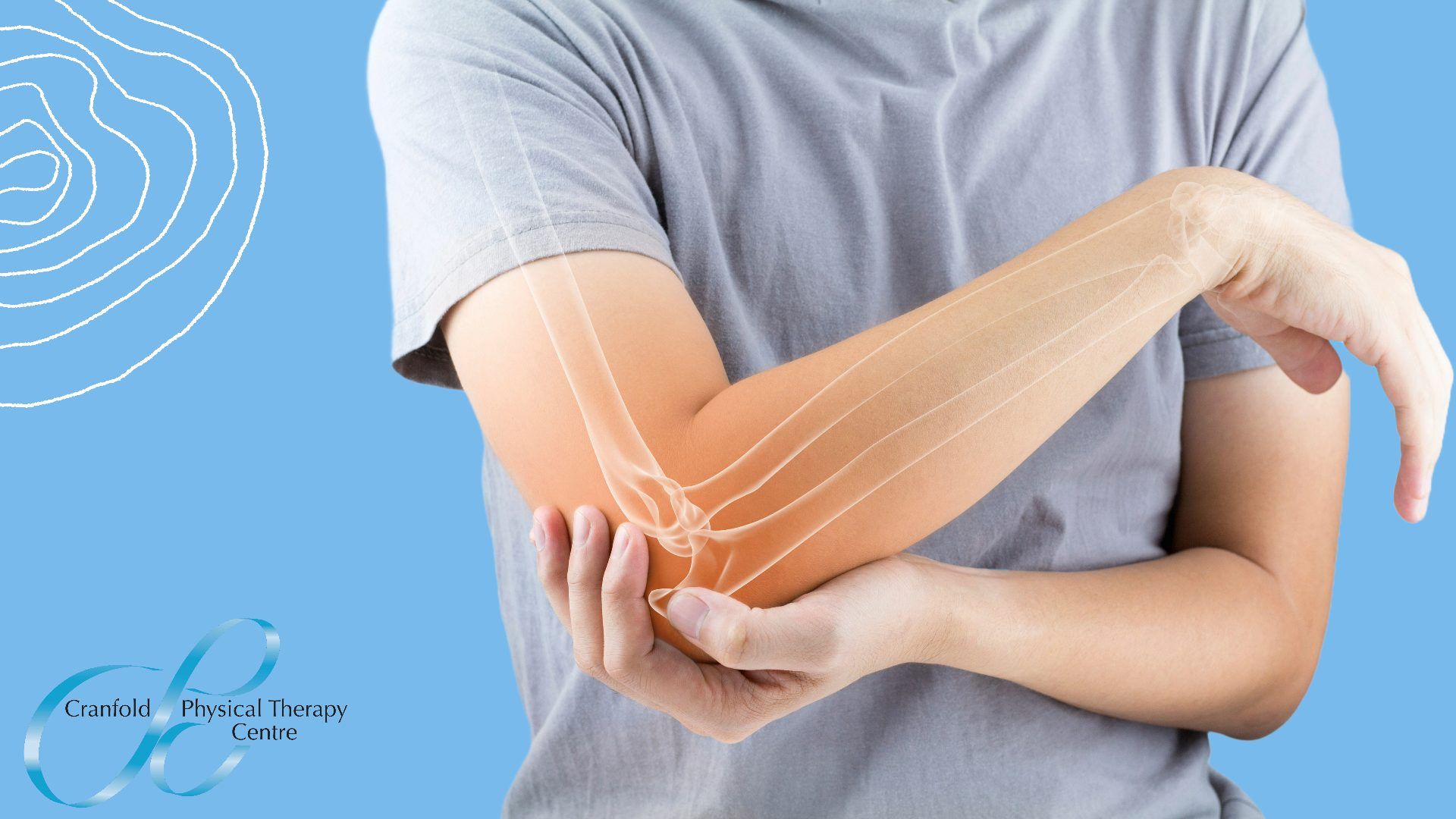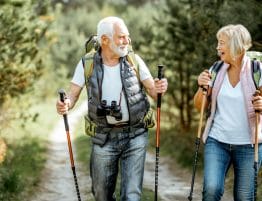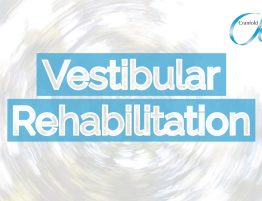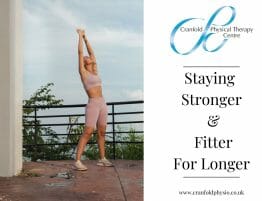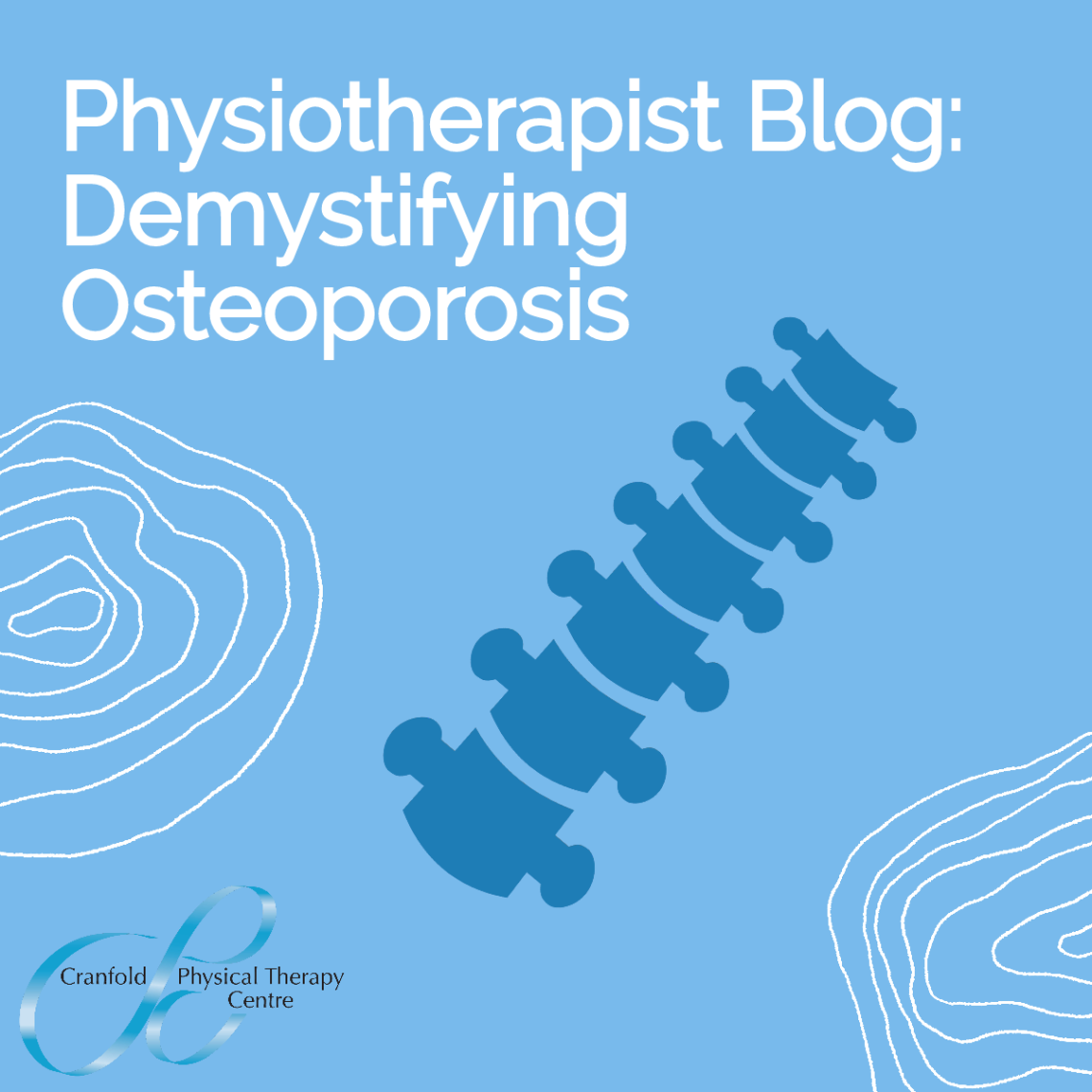
What is it?
It is a health condition that develops slowly overtime, which weakens bones, making them more fragile and likely to break. It is normally diagnosed when a fall or sudden impact causes a ben to fracture, with the most common fractures being wrist, hip, and spinal vertebrae (NHS website).
Osteopenia develops prior to osteoporosis, although it does not always develop into it. To help reduce the likelihood regular exercise helps!
Causes?
Genes affect the height and strength of your skeleton, but lifestyle factors (exercise and diet) have a large effect on the health of your bones.
Women are more at risk of osteoporosis than men, due to the menopause. Some examples of factors that increase the risk of osteoporosis include, taking high dose steroids for more than 3 months, a family history of osteoporosis, heavy drinking and smoking, and not regularly exercising.
Here at Cranfold we can help provide you with advice and education and help you increase your activity levels.
Treatment and prevention of osteoporosis
Your doctor will suggest the safest and best treatment plan for you.
Seeing a physiotherapist can help. We can help you to increase your activity levels to strengthen you bones and muscles. Doing this can help prevent bone thinning, reduce falls, and help you manage any pain you may experience.
A physiotherapist can tailor activities to you that suit your needs, in order to strengthen your bones. Furthermore, the majority of people who experience osteoporosis are older in age, and as you surpass 65 the risk of falling increases! Physiotherapy can help you improve you balance and reduce you risk of having a fall (CSP).
What exercises to do and don’t do
- Weight bearing exercises such as walking and hopping are highly recommended, these have been shown to improve bone density in people with osteoporosis. Further recommended activities to help increase bone density as strength training using weights and resistance bands.
- Flexibility and strengthening exercise to help to maintain mobility and postural control. Improving postural control can also reduce your chances of falling. Activities such as Pilates and Tai Chi can help!
- Balance exercises are recommended.
- Flexion exercises are not recommended! High level exercises involving flexion and twisting with weight should be avoided. Make sure your exercise instructor knows you have osteoporosis before completing high level exercises.
Here at Cranfold we can guide you with tailored advice, education, and exercise programs.
We also offer Pilates and Tai Chi!
To read more visit:
https://www.nhs.uk/conditions/osteoporosis/
Write a comment:
You must be logged in to post a comment.

